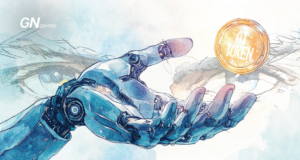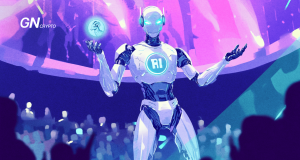Does AI Make People Less Intelligent?

On June 4, the popular bot ChatGPT faced an outage for several hours, and people took the internet by storm. Based on social media posts, many worried about their unfinished work. This question sums up the situation:
How am I supposed to get any work done with GhatGPT being down?
Have we become so dependent on AI that we are losing our ability to think independently and becoming less intelligent? Britannica defines human intelligence as a mental quality consisting of abilities such as learning from experience, adapting to new situations, understanding and handling abstract concepts, and using their knowledge to manipulate the environment. Now we have artificial intelligence, robotics, and other technologies to handle all these tasks.
On one hand, technology makes life easier for everyone, helping us find answers easily and be more productive, but on the other, we are risking becoming less intelligent. The reliance on AI has been around for a while. We use navigation to find locations and turn to virtual bots to get quick answers. As every person has their strengths and weaknesses, there are different situations where AI can help. If you get lost easily navigation may help, and if you need to speak a foreign language, AI translators may come in handy. It all seems fine, but how do we find the line where using AI can do more harm than good?
AI dependency and AI addiction have been a topic for discussion. If already today, we are seeing dependency on AI technologies, what will happen when AI becomes smarter? While human biological evolution is slow, AI progresses at a fast pace and may exceed human capabilities in the future. Talking about the phenomenon, tech reporter John Markoff writes in his book “Machines of Loving Grace:”
The same technologies that extend the intellectual power of humans can displace them as well.
Markoff’s approach to AI is balanced. He separates two ways that technology can impact people: Artificial Intelligence and Intelligent Augmentation. According to him, AI copies people’s capabilities and can perform tasks on its own. Examples of AI include self-driving cars and chatbots. Meanwhile, IA extends human capabilities and requires human collaboration to perform tasks like medical diagnostics and data analytics.
As AI progresses, it becomes more helpful to people. AI can support human creativity and automate repetitive tasks. Harvard Business Review considers AI as a tool to generate ideas and offer suggestions. It mentions:
Generative AI tools can solve an important challenge faced in idea contests: combining or merging a large number of ideas to produce much stronger ones.
Meanwhile, research by Nature explores the negative impacts of the technology. It mentions that excessively turning to AI for different reasons may make us lazy, and reduce our ability to make informed decisions. As a result, we may, ourselves turn into automated performers, who rely more on AI than on the capacity of our brains.
Use It or Lose It: How to Remain Smart While Benefiting From the Technology
The ability to adapt to changes is a major attribute of intelligence. But it takes great caution, self-management, and awareness to adapt to changes wisely. If the pessimistic scenarios come true and people become less smart, AI will not be the only factor to blame.
A study from scientists at Northwestern University and the University of Oregon shows that human intelligence is actually declining. The phenomenon is called the reverse Flynn effect, contrasting with the original Flynn effect, according to which IQ (Intelligence Quotient) scores were rising over the past century. In recent years, the process has taken another turn. In the US, the average score fell from 100 to 98.
IQ tests measure people's skills such as attention, memory, and problem-solving. However, they do not serve as an absolute measure of intelligence, as they leave out important abilities like emotional intelligence and creativity. Several reasons leading to the decline in IQ scores are an unhealthy diet, quality of education, addiction to smartphones, and how motivated the participants are to take the test. Recent research by the University of Southern California found that a junk food diet may disrupt the memory ability of teens. According to another study, done by the University of Amsterdam, the use of social media causes distraction and poses a challenge for adolescents in developing attention control abilities.
Based on the mentioned studies, AI has the potential to do harm or good, depending on how we choose to use it. It is already changing the way we think and create. The key is for everyone to learn how to benefit from and collaborate with AI, using their abilities to guide machines in performing specific tasks and achieving better outcomes.
The content on The Coinomist is for informational purposes only and should not be interpreted as financial advice. While we strive to provide accurate and up-to-date information, we do not guarantee the accuracy, completeness, or reliability of any content. Neither we accept liability for any errors or omissions in the information provided or for any financial losses incurred as a result of relying on this information. Actions based on this content are at your own risk. Always do your own research and consult a professional. See our Terms, Privacy Policy, and Disclaimers for more details.

























